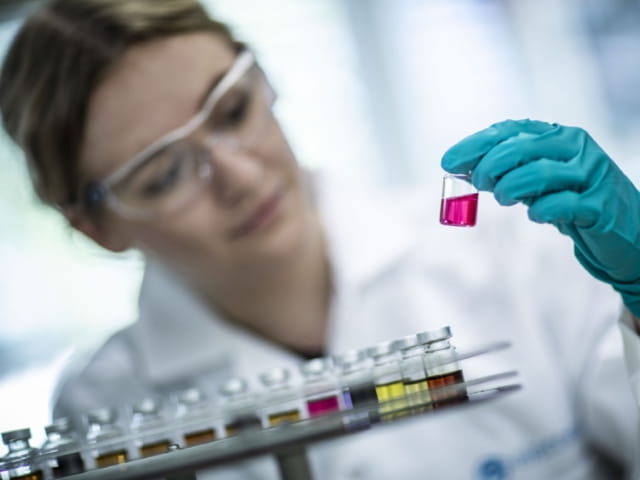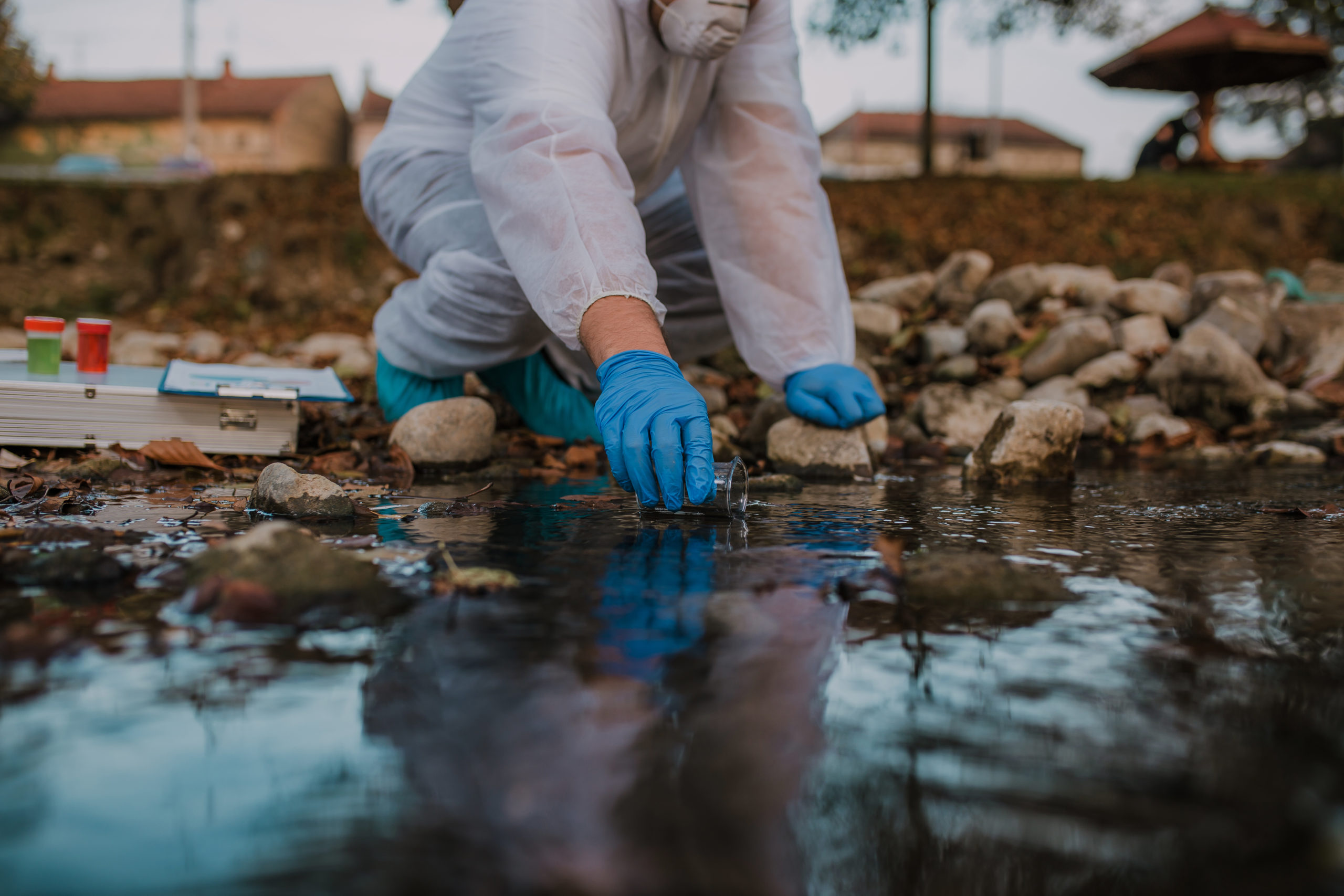Budget Friendly Water Testing Services Tampa: Secure Your Health And Wellness Today
Budget Friendly Water Testing Services Tampa: Secure Your Health And Wellness Today
Blog Article
Learn How Water Screening Can Identify Contaminants and Secure Your Family members's Well-being
Comprehending the significance of water testing is important for protecting your family's health and wellness, as our water supply can nurture undetected risks. By discovering the mechanics of water screening, one can reveal the unseen dangers hiding in relatively excellent water sources.
Value of Water Checking
Acknowledging the critical function water plays in maintaining life, the relevance of water testing can not be overstated. Ensuring that water is free from dangerous substances is essential for preserving healthy and balanced areas and communities. Water Testing Services Near Me.
Water screening acts as a proactive step to determine possible dangers that may endanger water quality. With organized analysis, it aids find physical, chemical, and biological specifications that could posture dangers to human health and wellness. Routine testing allows for the early discovery of issues, helping with prompt treatments to prevent prevalent contamination and linked health issue.
Furthermore, water screening supports governing compliance, making sure that water suppliers satisfy recognized safety and security criteria and guidelines established by governmental authorities. It promotes openness and responsibility, developing public rely on the water system. In addition, screening supplies important data that educates water administration techniques, enabling lasting usage and conservation of this priceless source.
Basically, water testing is an essential device that safeguards public health and wellness, guarantees regulatory adherence, and advertises the sustainable monitoring of water sources. Its relevance in shielding both individuals and communities can not be taken too lightly.
Typical Water Contaminants
Among the numerous aspects that can endanger water quality, typical water impurities include an array of physical, chemical, and biological compounds that posture considerable threats to human health and the setting. Physical pollutants typically include debris or organic products suspended in water, which can impact quality and taste. Chemical pollutants incorporate a broad selection important, including chemicals, herbicides, steels like lead and mercury, and industrial chemicals. These chemicals can penetrate water products through agricultural drainage, commercial discharges, or leaching from pipelines and storage containers.
Biological pollutants, largely germs, viruses, and protozoa, arise from human and animal waste getting in water supply. Microorganisms such as E. coli, Giardia, and Cryptosporidium are infamous for causing gastrointestinal diseases and can be particularly unsafe to children, the senior, and those with compromised body immune systems. Nitrates and nitrites, frequently originating from fertilizers, position another health and wellness risk, especially to infants, possibly leading to problems like methemoglobinemia or "blue child syndrome."
Furthermore, arising impurities, consisting of drugs and personal treatment products, have elevated worries due to their determination and unidentified lasting results. Comprehending these contaminants is crucial for applying effective water treatment approaches and making sure secure drinking water.
Exactly How Water Testing Works
Comprehending the spectrum of impurities in water underscores the importance of reliable screening methods to secure public wellness. Water screening is a methodical process created to determine and evaluate different pollutants that can position dangers to human health. This involves a series of logical procedures that detect contaminants such as bacteria, heavy steels, natural chemicals, and other pollutants. The testing process normally begins with sample collection from the water source, ensuring that examples are representative and uncontaminated during the collection procedure.
Chemical screening usually involves spectrometry or chromatography, both of which can recognize and determine details chemical substances. In addition, physical characteristics like turbidity, ph, and shade are evaluated to offer insight right into the general high quality of the water.
The specific techniques used in water testing depend upon the specific pollutants of worry and the water's meant usage. By regularly applying these extensive testing methods, scientists and public health and wellness officials can guarantee the safety and high quality of water, thus shielding areas from potential health and wellness hazards.
Picking the Right Test
The first action is examining the water source-- be it local, well, or surface water-- as each has distinct threats. Local water could call for screening for disinfectant byproducts, while well water may need testing for nitrates, microorganisms, and hefty steels.
Following, think about recent occasions and ecological read this post here aspects. Close-by agricultural tasks might necessitate testing for herbicides and chemicals, whereas commercial areas can need look for chemical toxins. In addition, any type of modifications in water appearance, smell, or taste should trigger specific testing for common pollutants like lead, chlorine, or organic virus.
Expert water screening solutions offer extensive packages that target a variety of potential contaminants. These kits frequently straighten with standards set by the Epa (EPA) or regional health departments. For a much more customized method, seeking advice from with a water high quality professional can give insights right into which certain tests are required based upon local problems and private health and wellness requirements, making sure the protection of your home's well-being.

Maintaining Water Safety And Security

In enhancement to testing, proper maintenance of water supply plays an essential duty. This consists of inspecting and servicing plumbing systems, tank, and septic systems to prevent leakages or backflow that could present contaminants - Well water testing services. Using water purification systems created to address specific neighborhood concerns can better guard versus pollutants, providing an additional layer of security
Public awareness and education are equally vital in keeping water safety. Communities must be educated concerning potential risks associated with neighborhood water sources and the required steps to reduce them. Urging public engagement in water security efforts promotes a collective responsibility that improves overall efficiency.
Inevitably, an extensive strategy that incorporates regular testing, system maintenance, and community involvement is important in safeguarding water high quality. By doing so, family members can be guaranteed of risk-free and clean water, great site protecting their health and well-being.

Final Thought
Routine water testing is essential for recognizing contaminants such as microorganisms, hefty steels, and chemicals that posture wellness dangers. By analyzing water examples, hidden hazards can be found, guaranteeing the provision of safe alcohol consumption water.
Recognizing the relevance of water screening is essential for safeguarding your family's health and wellness, as our water supply can harbor hidden risks.Water testing offers as a proactive procedure to identify prospective risks that might endanger water high quality.Additionally, water screening sustains regulatory conformity, ensuring that water suppliers fulfill recognized safety standards and standards established by governmental authorities. Community water could call for screening for disinfectant by-products, while well water might need screening for nitrates, microorganisms, and heavy metals.
Routine water screening is look at here a critical element in preserving the top quality of water sources, making it possible for prompt treatments before contaminants get to dangerous levels.
Report this page